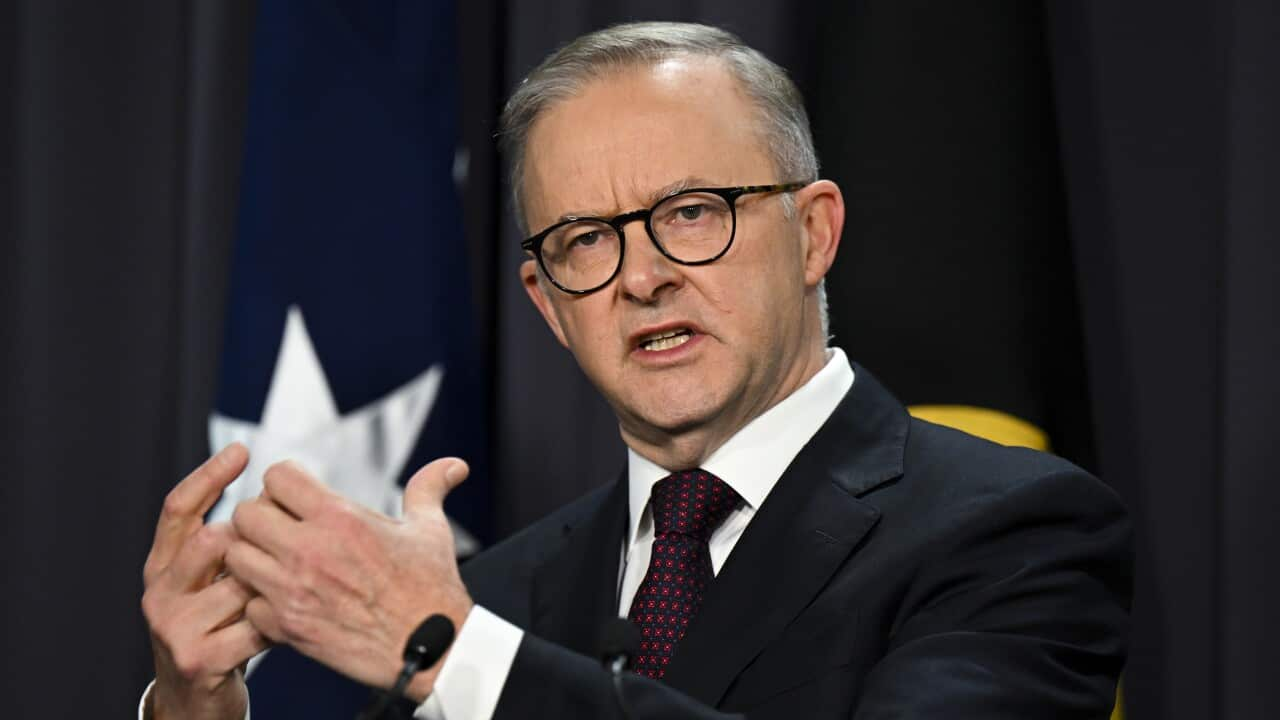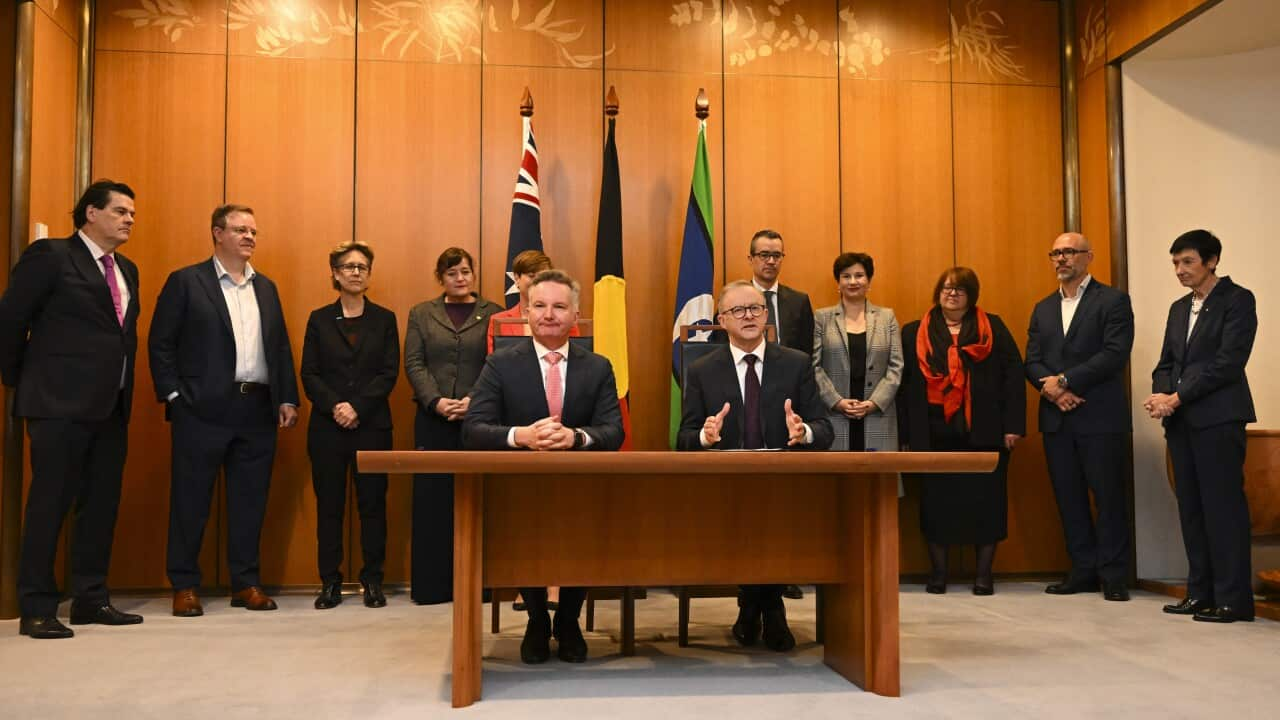National Cabinet's first meeting under Prime Minister Anthony Albanese will be dominated by the looming energy crisis and demands for a new health funding deal.
Mr Albanese expected to be pushed on his new government's commitment to supporting funding for states still grappling with the pressures of the pandemic.
The previous Morrison government committed to a 50-50 agreement for pandemic health costs that is due to expire in September.
States and territories want this extended, but they have also signalled an overhaul of health funding to combat sustained pressures on strained health systems.
South Australian Premier Peter Malinauskas said the 50-50 split was essential going forward, speaking to reporters in Canberra ahead of the meeting.
"Now is not the time, in our view, for the Commonwealth to be diminishing their support in terms of hospital funding," he said.
"The idea that at a moment of a national ... crisis on hospital admissions, now's not the time for the Commonwealth to be withdrawing that financial support.
"We've got a problem with healthcare service delivery, and it's out of the control of the states, so we need to work collaboratively with the Commonwealth."

At Friday's national cabinet meeting, South Australian Premier Peter Malinauskas will urge for federal health funding support to continue. Source: AAP / Mick Tsikas
The deepening energy crisis across the country is likely to be a key feature of discussion as warnings of power shortages in the energy market continue.
Energy Minister Chris Bowen said the federal government had been working with states and territories and the Australian Energy Market Operator to avoid blackouts.
“We are confident we can avoid blackouts. We will work hard to avoid load shedding,” he told reporters.
Queensland Premier Annastacia Palaszczuk earlier said health reform would be "front and centre" for her and her colleagues.
When questioned about the statement Mr Albanese said there was "nothing new" in the premier's call for additional health funding.
"And there is nothing new in my response," he said.
"I look forward to working constructively with state premiers and chief ministers."
He added that the meeting would occur in the context of being left with $1 trillion in debt by the Morrison government.
"We are not in a position to do everything we would like to do immediately."
The prime minister said Labor was committed to urgent care clinics and more support for primary health care.
Australian Medical Association President Omar Khorsid said Commonwealth assistance in health funding needed to be extended because COVID has not “gone away”.
“We are at a crisis point in health care and there is a critical opportunity for Australia’s leaders to draw a line in the sand and to seize the opportunity to fix our health system,” he told reporters.
The nation recorded 73 COVID deaths on Thursday, with an estimated more than 2,800 people also hospitalised across the country.

AMA President Omar Khorshid said federal help with health funding needs to be continued because the pandemic is not over. Source: AAP / LUKAS COCH/AAPIMAGE
“What we really need in the longer term is a new approach to hospital funding and a new approach to reform of health care, including general practice reform,” he said.
Hospital ramping has become a central concern across many jurisdictions including South Australia, Victoria, New South Wales and Queensland.
This occurs when emergency departments are at capacity meaning patients are unable to be transferred from ambulances in a timely manner.
Mr Albanese said another one of his agenda items would be productivity reform.
“I want productivity to be front and centre of that agenda,” he said.
The prime minister said he would also talk to the premiers about involving local government, which had a place at the table under the former Council of Australian Governments format.
Mr Malinauskas said he was open-minded about national cabinet reform.
“There is an urgent need for seamless, collaborative engagement between the state and the Commonwealth regardless of political persuasions,” he said.
“There are so many challenges we’ve got as a country at the moment.”
With AAP.



